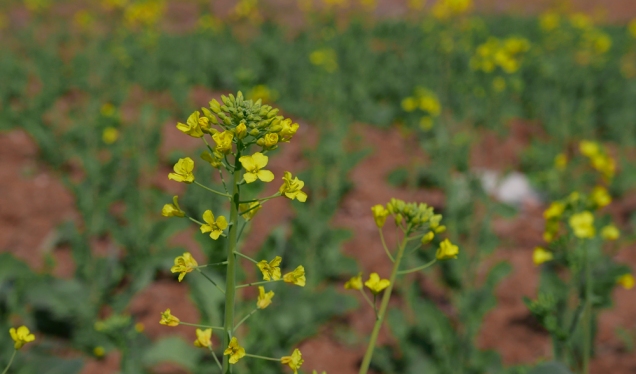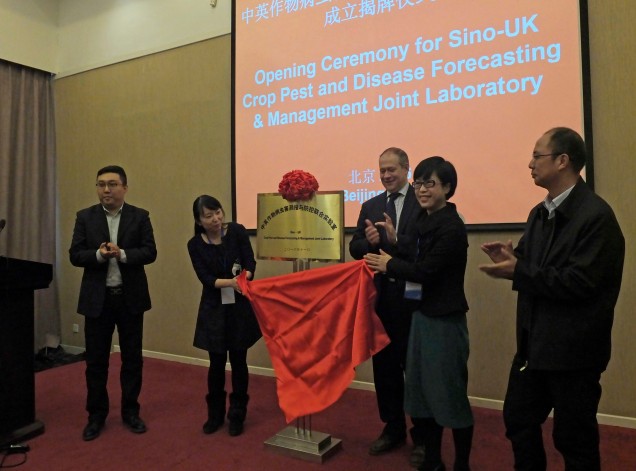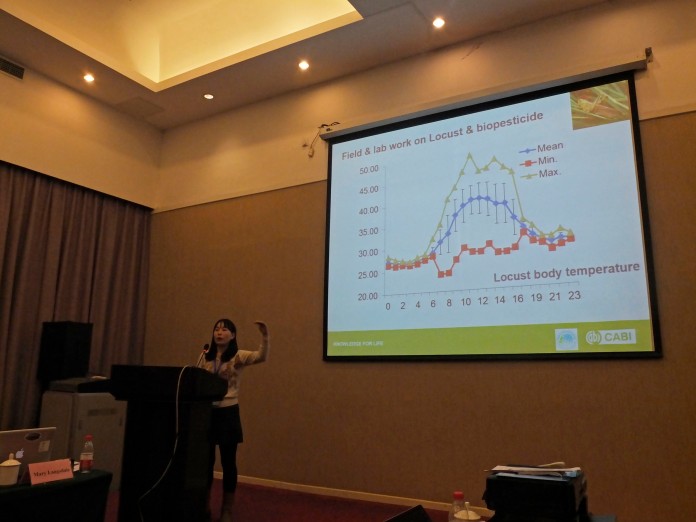CALL FOR FUNDING:
OPEN
APPLICATIONS ARE INVITED FOR:
LARGE PROJECT AWARDS.
THE APPLICATION DEADLINE IS: 12:00 NOON (GMT) ON THURSDAY 30 NOVEMBER 2017.
CALL FOR FUNDING:
OPEN
APPLICATIONS ARE INVITED FOR:
THE APPLICATION DEADLINE IS: 12:00 NOON (GMT) ON THURSDAY 30 NOVEMBER 2017.
This very successful workshop has ended – we funded a range of new initiatives to support the work of the Science and Technology Backyard network.
Fully-funded places are available to attend a workshop in China to develop and secure funding for proof-of-concept research on the application of space science and related technologies to support Chinese Agriculture. The workshop will be held on 5-8 November 2017, and we expect to inform successful applicants on 2nd October.
Details and an application form are available here: November Workshop Announcement and Call for Interest
The Workshop will develop and fund new UK-China initiatives that use satellite-enabled technologies to address the following:
UK and China attendees will be invited to attend based on their capacity and interest to contribute to achieving these key aims.
The Agritech in China Network is delighted to announce the ten successful applicants of our first round of project calls. Five Pathfinder projects and five Proof of Concept projects were approved – each one bringing together unique UK and Chinese expertise to develop and test ideas to solve some of the many problems that both countries’ agriculture sectors face. They range from in situ testing of capsule machines for checking irrigation systems, to applying remote sensing techniques for monitoring potato crop health.

With the UK and China officially in a “Golden Age” of collaboration, and as both nations face similar challenges to increasing the productivity and sustainability of their agricultural systems, albeit on different scales, new UK-China agricultural technology partnerships offer opportunities that can contribute to improving the health and nutrition of a quarter of the world’s population, and to the sustainability of the environments. The UK’s establishment of four Agritech centres – Agrimetrics, which covers big data; the Agriculture Engineering Precision Innovation centre (Agri-EPI); the Centre for Crop health and Protection (CHAP) and; the Centre for Innovation Excellence in Livestock (CIEL) – is a major commitment to boosting the UK’s capacity to improve farming practice, boost inward investment and develop commercial opportunities for agricultural businesses in these sector-leading areas. China is investing heavily in agricultural innovation, seeking to improve environmental sustainability of its production systems and improve the quality and traceability of its food products, whilst grappling with the challenges of a rapidly urbanising population.
The Agritech in China Newton Network runs regular calls for project proposals. Proposals may be for Pathfinders (primarily for people exchange), Proof of Concept (primarily for in situ development and testing), and large projects (primarily to take a proven solution and apply it in a broader real-farm context). The next call will be issued in April.
New projects
Pathfinder projects
Proof of Concept projects
Partners from the Institute of Remote Sensing and Digital Earth (RADI) of the Chinese Academy of Sciences, the China Rural Technology Development Centre (CTRDC), Chinese Academy of Agricultural Sciences (CAAS), Centre for Agriculture and Biosciences International (CABI), Rothamsted Research and many others recently signed into existence the Sino-UK Crop Pest and Disease Forecasting and Management Joint Laboratory, under the directorship of Professor Huang Wenjiang of RADI. More….

The ceremony was followed by a workshop for the CABI and RADI-managed Integrating Advanced Earth Observation and Environmental Information for Sustainable Management of Crop Pests and Diseases project, one of our Agri-Tech in China projects.

The Agri-Tech in China Newton Network develops innovative research, development and commercialisation partnerships between the UK and China in modern agriculture. Our work aims help the UK and China address the critical challenges affecting modern agriculture, and develop innovative solutions that are appropriate for both the United Kingdom and China.